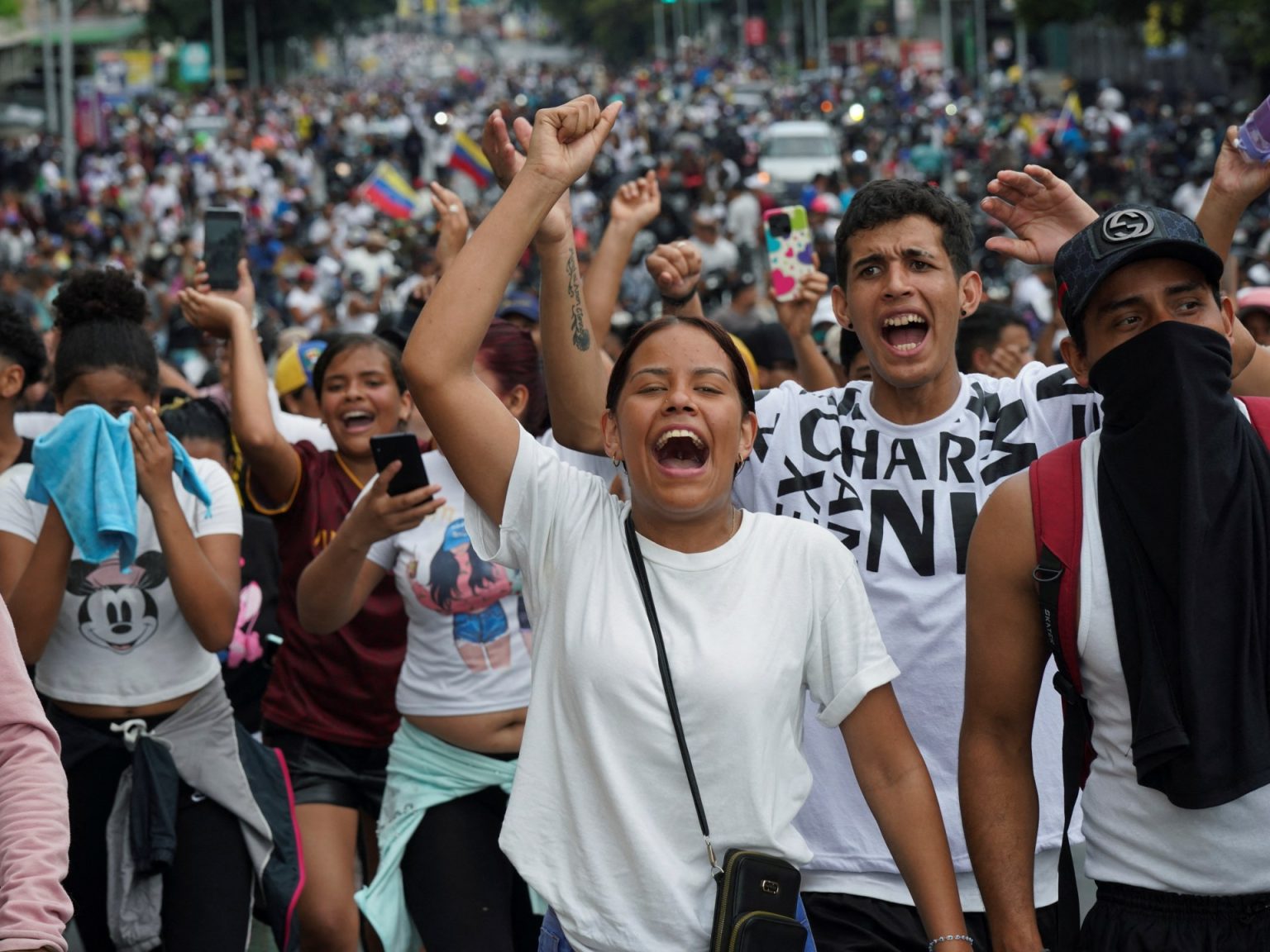The protests in Venezuela erupted after President Nicolas Maduro secured a controversial third term in office. The opposition accused the National Electoral Council (CNE) of being biased towards the ruling party, leading to claims of irregularities in the election process. Maduro’s victory was disputed by opposition leader Maria Corina Machado, who claimed to have evidence of a different outcome. The opposition movement, led by Machado and Edmundo Gonzalez, challenged Maduro through the Democratic Unitary Platform coalition.
The electoral process in Venezuela is conducted using electronic machines that record votes and provide a paper receipt for each voter. However, there were allegations that opposition witnesses were denied access to polling stations and were unable to observe the vote counts. The CNE reported Maduro winning 51 percent of the vote, while the government accused the opposition of attempting to sabotage the election. The opposition claimed they had tallies showing a different outcome, but tensions rose as the CNE delayed releasing official results.
Protests erupted in Venezuela following the announcement of Maduro’s victory, with opposition supporters taking to the streets in defiance. The protests spread to various parts of the country, with people banging pots and pans in a traditional Latin American form of protest known as cacerolazo. Concerns of violence escalated as paramilitary forces loyal to Maduro, known as colectivos, were reported to be using weapons to suppress the protests. Over 46 people were arrested during the demonstrations, raising fears of further unrest in the country.
The opposition is faced with uncertainty as to their next steps, with many aides and allies of Machado and Gonzalez already arrested by the government. Despite pressure from supporters, the opposition leaders are cautious not to incite violence and are focusing on seeking recognition of their victory. Both the government and the opposition have called for demonstrations, but it remains unclear how the situation will unfold. International actors, including the US, UK, and various Latin American countries, have expressed concern over the election results, while countries like China, Cuba, Iran, and Russia have congratulated Maduro.
The Organization of American States (OAS) has called for an extraordinary meeting to address the election outcome, highlighting the international scrutiny on Venezuela. With tensions high in the country, the handling of the situation by both the government and the opposition will be crucial in determining the future of Venezuela. The risk of further violence and repression looms large, as calls for transparency and legitimacy in the electoral process continue to reverberate both within Venezuela and on the international stage.


